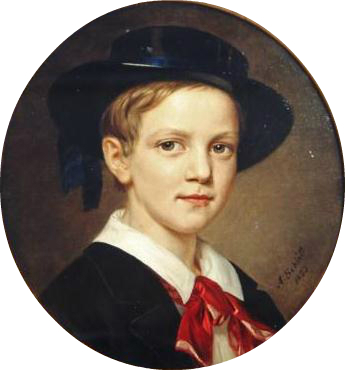|
Princess Marina Of Greece And Denmark
Princess Marina, Duchess of Kent (27 August 1968), born Princess Marina of Greece and Denmark ( el, Μαρίνα), was a Greek princess by birth and a British princess by marriage. She was a daughter of Prince Nicholas of Greece and Denmark and Grand Duchess Elena Vladimirovna of Russia, and a granddaughter of King George I and Queen Olga of Greece. Princess Marina married Prince George, Duke of Kent, fourth son of King George V and Queen Mary, in 1934. They had three children: Prince Edward, Princess Alexandra, and Prince Michael. The Princess was widowed in 1942, when her husband was killed in a plane crash on active service. In later life she carried out many royal engagements, including the independence celebrations for Ghana and Botswana. Early life Princess Marina was born on 13 December 1906 in Athens, Greece, during the reign of her paternal grandfather, George I of Greece. She was the third and youngest daughter of Prince Nicholas of Greece and Denmark, and his ... [...More Info...] [...Related Items...] OR: [Wikipedia] [Google] [Baidu] |
Duchess Of Kent
Duchess of Kent is the principal courtesy title used by the wife of the Duke of Kent. There have been four titles referring to Kent since the 18th century. The current duchess is Katharine, the wife of Prince Edward. He inherited the dukedom on 25 August 1942 upon the death of his father, Prince George, the fourth son of George V. History Henry Grey, 12th Earl of Kent since 1702 (of the eighth creation in the peerage of England) was raised to the peerage of Great Britain in 1706 under Queen Anne as Marquess of Kent, Earl of Harold and Viscount Goderich, then as Duke of Kent in 1710. In 1694, he had married Jemima Crew, who became Countess, Marchioness and then Duchess of Kent in 1702, 1706 and 1710 respectively. She died in 1728. In 1729, he married Sophia Bentinck, who died exactly a year after he did. The dukedom, marquessate and earldom of Kent all became extinct, as the duke had survived all of his sons and had no male collateral heirs. However, two subsidiary titles ( ... [...More Info...] [...Related Items...] OR: [Wikipedia] [Google] [Baidu] |
George I Of Greece
George I ( Greek: Γεώργιος Α΄, ''Geórgios I''; 24 December 1845 – 18 March 1913) was King of Greece from 30 March 1863 until his assassination in 1913. Originally a Danish prince, he was born in Copenhagen, and seemed destined for a career in the Royal Danish Navy. He was only 17 years old when he was elected king by the Greek National Assembly, which had deposed the unpopular Otto. His nomination was both suggested and supported by the Great Powers: the United Kingdom of Great Britain and Ireland, the Second French Empire and the Russian Empire. He married Grand Duchess Olga Constantinovna of Russia in 1867, and became the first monarch of a new Greek dynasty. Two of his sisters, Alexandra and Dagmar, married into the British and Russian royal families. Edward VII of the United Kingdom and Alexander III of Russia were his brothers-in-law, and George V of the United Kingdom, Christian X of Denmark, Haakon VII of Norway, and Nicholas II of Russia were his nephew ... [...More Info...] [...Related Items...] OR: [Wikipedia] [Google] [Baidu] |
Emperor Alexander II Of Russia
Alexander II ( rus, Алекса́ндр II Никола́евич, Aleksándr II Nikoláyevich, p=ɐlʲɪˈksandr ftɐˈroj nʲɪkɐˈlajɪvʲɪtɕ; 29 April 181813 March 1881) was Emperor of Russia, King of Poland and Grand Duke of Finland from 2 March 1855 until his assassination in 1881. Alexander's most significant reform as emperor was the emancipation of Russia's serfs in 1861, for which he is known as Alexander the Liberator ( rus, Алекса́ндр Освободи́тель, r=Aleksándr Osvobodytel, p=ɐlʲɪˈksandr ɐsvəbɐˈdʲitʲɪlʲ). The tsar was responsible for other reforms, including reorganizing the judicial system, setting up elected local judges, abolishing corporal punishment, promoting local self-government through the ''zemstvo'' system, imposing universal military service, ending some privileges of the nobility, and promoting university education. After an assassination attempt in 1866, Alexander adopted a somewhat more conservative stance ... [...More Info...] [...Related Items...] OR: [Wikipedia] [Google] [Baidu] |



.jpg)